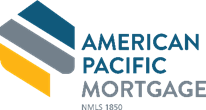What is a Self-Employed Loan?
Self-employed lending solutions are specialized financial products and services designed to address the unique needs and challenges faced by individuals who are self-employed or have irregular income streams. Traditional lending processes may not always cater to self-employed individuals due to variations in income, complex tax situations, and other factors. Self-employed lending solutions aim to provide these individuals with access to credit and financial services tailored to their specific circumstances. These solutions can include various types of loans, mortgages, and other financial products:

- Self-Employed Mortgages: Self-employed individuals may face challenges when applying for a traditional mortgage due to fluctuating income or complex tax returns. Self-employed mortgage programs take into account business income, personal income, and other factors to assess the borrower’s ability to repay the loan. These mortgages may require additional documentation and alternative underwriting processes.
- Bank Statement Loans: Bank statement loans allow self-employed borrowers to qualify for a mortgage or other loans using their business and personal bank statements to demonstrate income. These loans may have higher interest rates or fees, but they offer flexibility for individuals whose tax returns don’t accurately reflect their ability to repay.
- No-Doc Loans: No-documentation or stated-income loans may be available for self-employed borrowers who have difficulty providing extensive documentation of income. These loans typically come with stricter requirements, higher interest rates, and potentially larger down payments.
- Asset Depletion Loans: Self-employed borrowers with substantial assets but limited income may qualify for asset depletion loans. These loans consider a portion of the borrower’s liquid assets as a source of income, helping them qualify for a mortgage.
- Business Loans: Self-employed individuals often need funding for their businesses. Business loans tailored to the self-employed may consider business income and financial health to determine loan eligibility and terms.
- Personal Loans: Self-employed individuals may need personal loans for various purposes, such as home improvements, debt consolidation, or unexpected expenses. Lenders offering self-employed lending solutions may have more flexible underwriting criteria.
- Credit Cards for Business Owners: Many self-employed individuals use credit cards for business expenses. Some credit card issuers offer cards specifically designed for business owners, with features like cashback rewards, travel benefits, and expense tracking tools.
- Credit Building Solutions: Self-employed individuals may face challenges in building or maintaining a good credit score. Lenders and financial institutions may offer credit-building solutions to help establish or improve credit history.
- Financial Consulting and Advice: Self-employed lending solutions often include access to financial advisors who understand the unique financial needs of self-employed individuals. These advisors can help borrowers make informed decisions about loans, mortgages, and other financial matters.
It’s important for self-employed individuals to work with lenders and financial institutions that specialize in self-employed lending solutions. These lenders have experience in assessing the financial profiles of self-employed borrowers and can offer guidance on the most suitable products based on individual circumstances. As with any financial decision, thorough research and careful consideration of terms and costs are essential.
With the right documentation and financial information, borrowers can obtain a self-employed mortgage loan and achieve their dream of homeownership. Contact Jason Vassar Home Loans today to learn more about getting a Self-Employed Mortgage Loan.







